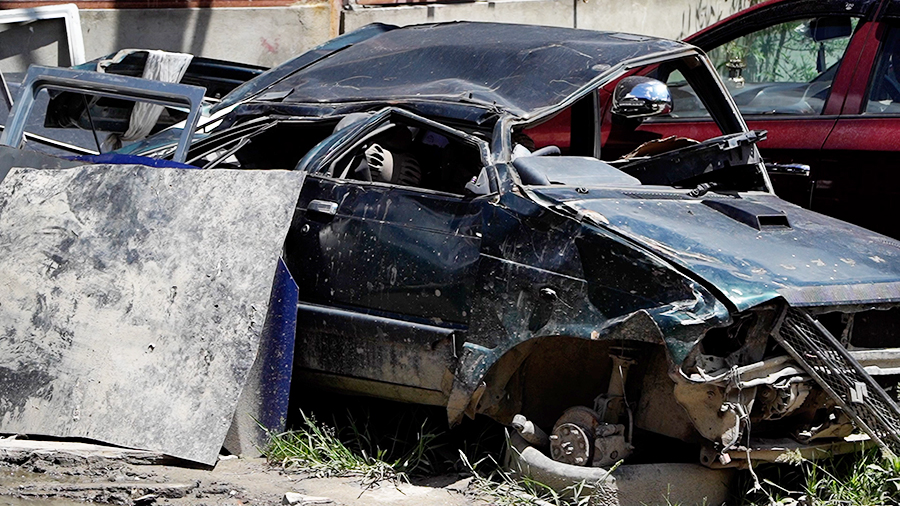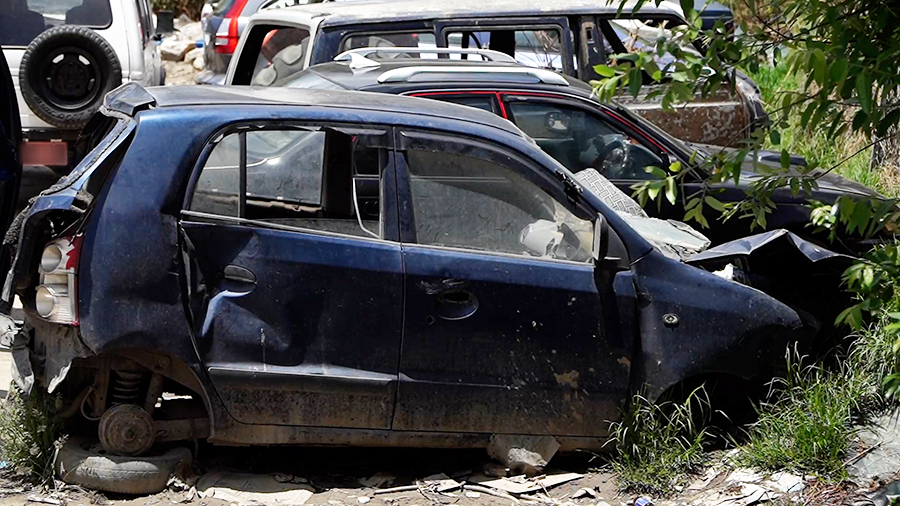 Abandoned cars and those still waiting for repairs are congesting the Olakha automobile workshop area in Thimphu. It is now causing significant inconveniences to operators and customers alike. Workshop owners say they are struggling to work under growing pressure and limited space.
Abandoned cars and those still waiting for repairs are congesting the Olakha automobile workshop area in Thimphu. It is now causing significant inconveniences to operators and customers alike. Workshop owners say they are struggling to work under growing pressure and limited space.
 Several non-operational vehicles can be seen at the Olakha Automobile Workshop area. Some of these cars have been here for years now.
Several non-operational vehicles can be seen at the Olakha Automobile Workshop area. Some of these cars have been here for years now.
Neither individuals nor the workshop owners are claiming responsibility. Sometimes, vehicle owners leave their vehicles but fail to return, occupying space and causing delays in repairs.
The presence of these unclaimed cars continues to pose challenges.
“Some of the vehicles, I feel that the owners of the vehicles are purposely dumped here because they have no other place to keep their vehicles. And this has hampered not only the business but also the overall look of the workshop,” said Ugyen Dorji, the owner of the Yangki Automobile Workshop.
Some workshop employees said it is due to inadequate space within the workshop premises. They said there is a lack of consistent monitoring and enforcement by the authorities.
However, according to the Automobile Association Organisation, in some cases, the police do intervene and take necessary action.
Meanwhile, typically, when a vehicle is beyond repair, any usable parts are salvaged.
 Otherwise, this is where it can go: scrapyard.
Otherwise, this is where it can go: scrapyard.
“Most of these vehicles are irreparable, so we dismantle them and send the scraps to factories. However, we reuse any parts that are still in good condition. This helps because some parts are hard to source, and ordering even small components can take a long time,” said Suk Bahadur Subba, the manager of A.S Scrap Dealer.
As per the Road Safety and Transport Regulations, if a scrapped vehicle is not renewed for three consecutive years, it will be deregistered. And the owner must pay the renewal fees for those three years, along with a one-time penalty based on the vehicle type.
An official from the Bhutan Construction and Transport Authority said that individuals who fail to deregister such vehicles will not be allowed to register new ones unless all outstanding penalties are cleared.
Meanwhile, once vehicles are scrapped and deregistered, there is no clear policy outlining their proper disposal, leaving the responsibility entirely to individuals.
While efforts are made occasionally, workshop owners acknowledged that a more coordinated and regular approach is needed to effectively address the problem.
Kinzang Lhadon
Edited by Tandin Phuntsho










